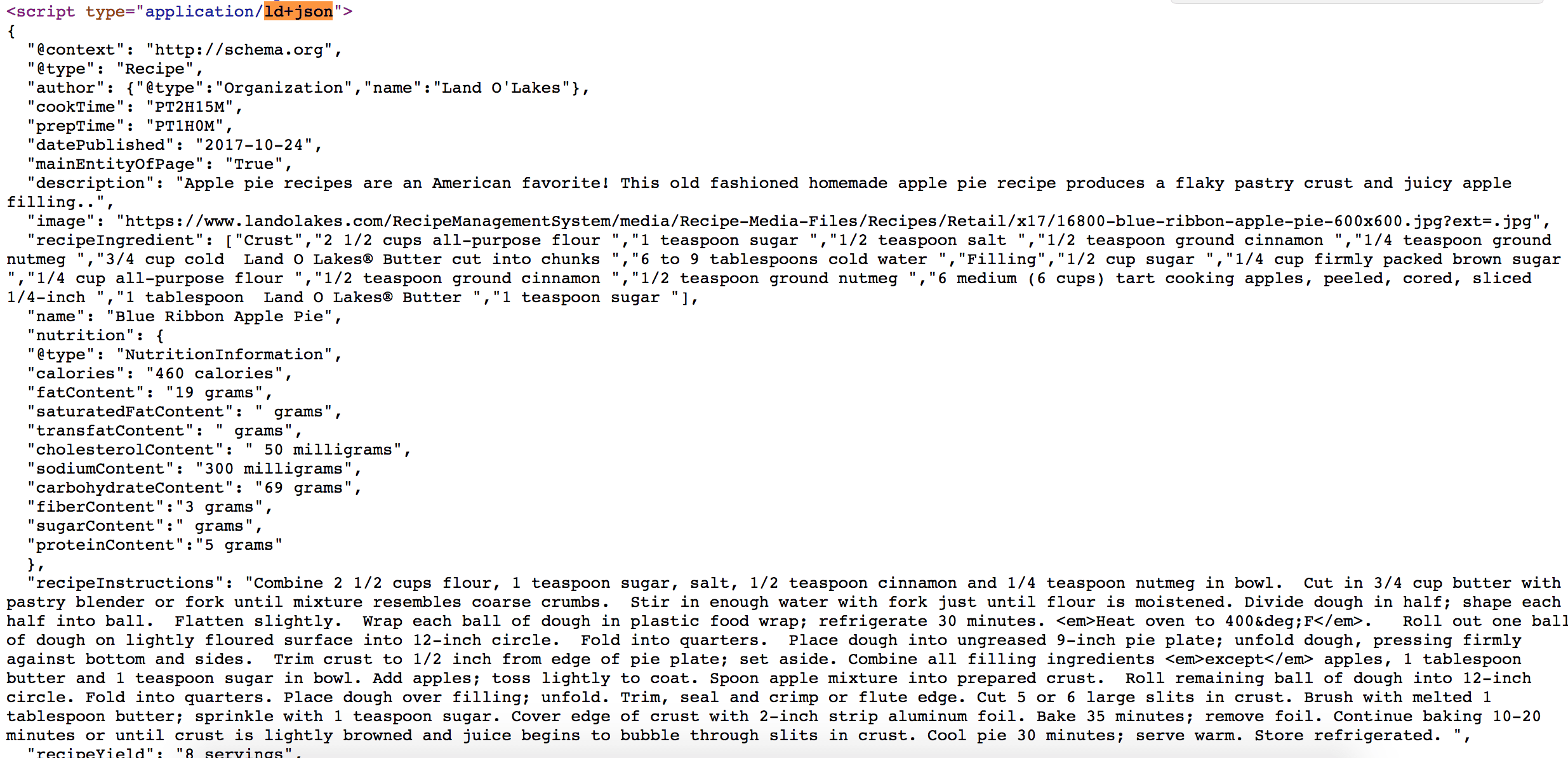The way your website appears in search results certainly influences how much traffic you get, and the type of traffic you receive. Schema markup is a way to tell search engines what content to show, and what type or category of content it is, to better customize the way it appears in results. In this way you can drive more relevant traffic to your website, and increase your overall SEO. Below we will explore what Schema is, how to implement Schema markup for WordPress, as well as Schema resources available to you.
What is Schema Markup?
Some might call Schema markup your “business card” for search engines. Schema markup allows you to customize the way your site appears in search results in a way optimized to what different objects mean.
For example, you could reference a name like “Jon Snow” in the text on your page. Schema markup tells search engines what that data means: is this the name of the Author or an Actor in a television series? By clearly defining the structure of this data using Schema markup, you can send a more representative “business card” to users on search engines.
Schema vocabulary, or contextual data structure embedded in your page, can be used within several different formats of markup, including JSON-LD, Microdata, and RDFa.
Schema for SEO
Schema can often be misconstrued as elements that help boost your website’s search rankings (SEO). While it is true that Schema does optimize the way your site appears within the search rankings, it does not inherently increase them. However, when users can see relevant contextual information about your website more clearly than others in search rankings, it may influence more users to visit your website. You can use Schema markup to show things like ratings, reviews, and related subpages all within the search engine results.

Above we can see an example of the Fandango app on the App Store/iTunes. It shows how many reviews the app has received, its rating, price, category, and on which devices (iOS) it is supported.

And in this example, because the Stubb’s Bar-B-Q website uses itemprop=”event” tags, when I search “events stubbs” I see a nice list of events, dates, and titles for those events as my first search result.
Remember, while websites using Schema do not get preferential treatment by search engines, they might get preferential treatment from actual users. The additional data structure helps a user to easily see whether the information on the page will be relevant to what they need or not.
JSON-LD Schema
While Schema vocabulary is supported in several formats, JSON-LD tends to be the most common. In fact, Google explicitly recommends the use of JSON-LD in their documentation. JSON-LD is a way to embed Linked Data (LD) using strictly JSON as a script on your webpages. An example of JSON-LD markup can be found when searching for a recipe. I searched “homemade apple pie recipe” and found the following top result:

The JSON-LD markup is what allows all this useful metadata to show up when we search. When I “View Page Source” on that page, I can see the JSON-LD they used to get this metadata to display:

Tags like @type tell us this is a Recipe, and the “author” tag tells us it’s made by a @type of Organization, named “Land O’ Lakes.” Further bits of data like length of time to prepare, steps to prepare, calories, featured image, and rating are also assigned with these tags.
JSON-LD Schema Generators
If you would rather use a generator tool to get the JSON-LD Schema snippet for your website, you are not alone. It can be difficult for those unfamiliar with JSON, JavaScript, or HTML to learn how to create a snippet containing the metadata they want to display. Below are some of the best resources for creating JSON-LD markup:
- Webcode.tools has a comprehensive generator tool that allows for many types of web content and metadata fields.
- Microgenerator.org has a markup generator tool that works for both Microdata and JSON-LD (default is JSON-LD per Google’s recommendation)
- Hall Analysis has created a step-by-step tool that shows the visual JSON-LD markup and how it changes as you add more information.
How to Add Schema to WordPress
Now that we have explored what schema markup looks like, you may be wondering: how do I embed this kind of markup on my website? There are a few different ways. If you want to go the manual route, Torque has a guide for developers on how to DIY when it comes to embedding Schema markup. Otherwise you can use a WordPress plugin that automatically embeds it for you.
Schema WordPress Plugins
Using a plugin to configure your Schema markup is likely the most easy option for most users. There are a number of WordPress plugins to help you create rich meta descriptions and formatting.
The All in One Rich Schema Snippets plugin allows users to select what each page and post is about, for a more structured search engine appearance.

And the Schema App Structured Data plugin takes it a step further to automatically configure Schema settings and data on your behalf, by configuring a few high-level settings around your business like your logo, address, and type of company. While this is certainly more powerful than many plugins and much easier than doing it all manually, the free version of the plugin only supports snippets for 10 pages. So unless your site is rather small, you may have to opt for the paid version to ensure your full site has structured Schema data.
Beyond these two plugins there are also plugins centered around certain Schema features (like Reviews and Ratings, with WP Product Review). There are also plugins which will automatically add a certain type of Schema markup to your website (like Local Business Schema, and Schema for Article). If your website falls into one of these categories, you are in luck. These plugins can help put the right type of Schema markup on your website automatically after a few simple configuration settings are saved.
Schema.org
Schema.org is an agreed-upon set of vocabulary terms used to describe website structure and data. Professional teams from Google, Yahoo, and Bing came together to create consistency in their structure and terminology. This means regardless of which format you use to generate your markup, search engines will know what it means because there is common language used in all of them. Head to Schema.org to learn more about the core vocabulary used in Schema markup.
How to Test Schema
After using a plugin to set Schema markup, or manually configuring the markup yourself, you may want to test and make sure search results for your website are appearing as intended. Search no further: Google has created the Structured Data Testing Tool for exactly this purpose.

You can either enter a URL to test existing Schema markup, or enter a code snippet to test it before using it on your website. We recommend using the code snippet tester to ensure all works as intended without errors or warnings before embedding the markup on your website.
WP Engine and Schema Markup
WP Engine is a Digital Experience Platform, finely tuned for your success. With insights from Content Performance, your content creators will find inspiration and direction. And integrations from Google Analytics as well as Schema markup tools work seamlessly with their hosting ecosystem.
Ready to get started? Explore WP Engine plans.

